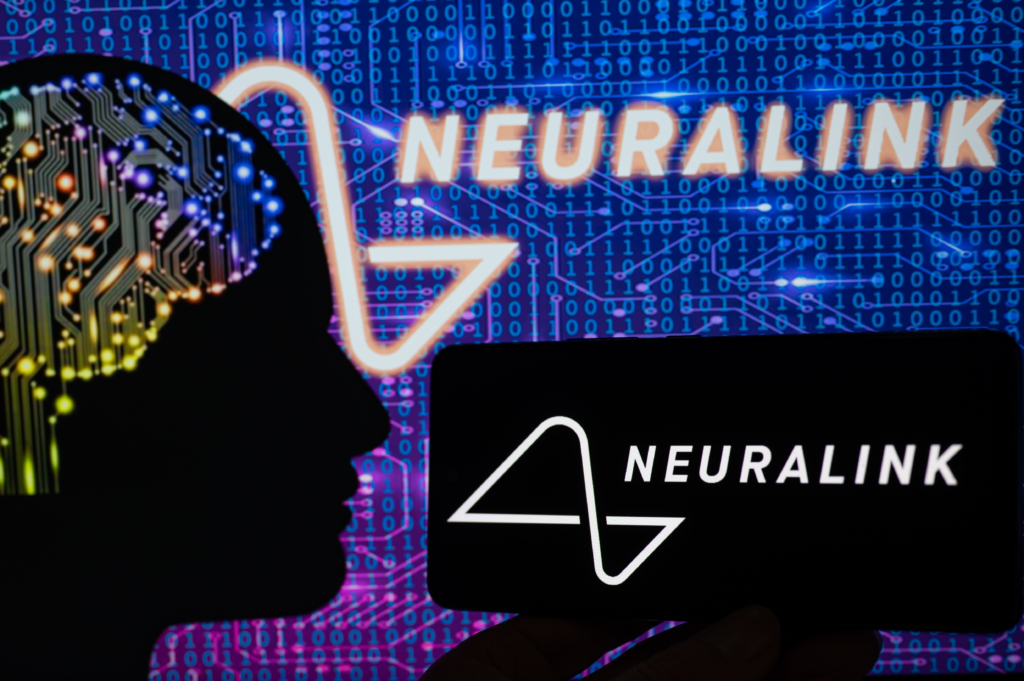Elon Musk’s Neuralink has begun its recruitment for human clinical trials, a move that has been met with significant debate. This May, the startup cleared a major hurdle by receiving approval from the US Food and Drug Administration (FDA) for this first-of-its-kind trial, a monumental progression after earlier regulatory challenges.
With the go-ahead from an independent review board, Neuralink is set to offer brain implants to paralyzed individuals in the PRIME study. PRIME — short for Precise Robotically Implanted Brain-Computer Interface (BCI) — is designed to evaluate the implant’s safety and performance. Participants will be implanted with a BCI through a robotic system, allowing them to operate a computer cursor or type solely with their thoughts.
“The PRIME study is being conducted under the investigational device exemption (IDE) awarded by the FDA in May 2023 and represents an important step in our mission to create a generalized brain interface to restore autonomy to those with unmet medical needs,” the company wrote in their press release.
XTALKS WEBINAR: Computer Software Assurance for FDA-Regulated Industries
Live and On-Demand: Friday, September 29, 2023, at 10am PDT (1pm EDT)
Register for this free webinar to embrace the future of software compliance and learn how to navigate regulatory requirements more effectively to elevate a company’s success.
What Is Neuralink and How Does it Work?
BCIs decode movement intentions from brain signals, facilitating control over devices like computers. Neuralink employs the R1 Robot for the surgical placement of the N1 Implant’s ultra-fine threads into the brain section governing movement intentions. The implant, hosting a network of 1,024 electrodes across 64 threads — each thinner than human hair — captures neural activities. Once in place, the inconspicuous N1 Implant wirelessly forwards brain signals to software that deciphers movement-related intentions. Neuralink’s proprietary software then interprets these movement intentions from the detected brain signals.
Eligibility for the study includes quadriplegic individuals aged 22 or older, with conditions like spinal cord injuries or amyotrophic lateral sclerosis (ALS). They should be at least one-year post-injury (without any improvement) and have reliable caregiver support.
Rivals to Elon Musk’s Neuralink
While Neuralink is a notable new player in the BCI arena, several other companies have quietly but decisively made their mark, with considerable financial backing and pioneering human implants.
- Blackrock Neurotech: Based in Utah, this firm pioneered its BCI implantation back in 2004, setting a precedent for numerous subsequent procedures. Their BCI MoveAgain received the FDA’s Breakthrough Device designation in late 2021. The company is gearing up to launch this as the first BCI product specifically designed for home use.
- Precision Neuroscience: Founded by a Neuralink co-founder, this enterprise is driven by the same ambition: aiding paralyzed individuals. Their innovative implant resembles an ultra-thin strip, similar to tape, and is strategically placed on the brain’s surface. What differentiates it is the “cranial micro-slit” method of implantation, which the company champions as considerably less invasive. They embarked on a clinical study to map human brain signals this past June.
- Synchron: This BCI startup has the powerful backing of industry giants Jeff Bezos and Bill Gates. They launched their clinical trial, COMMAND, in March of this year. This study, categorized as an initial feasibility study (EFS), zeroes in on safety evaluations. It also signifies the outset of research into the effectiveness of the Synchron Switch™. This BCI device, introduced via blood vessels, holds promise for individuals with limited or no mobility, allowing them to operate devices solely with their thoughts. The FDA recognized its potential by granting it the Breakthrough Device designation in August 2020 and the Investigational Device Exemption (IDE) in July 2021, facilitating its use in clinical trials to gather data on safety and efficacy.
- Paradromics: This company recently clinched the FDA’s prestigious Breakthrough Device designation for its Connexus Direct Data Interface (DDI). This recognition paves the way for Paradromics to spearhead its first-in-human clinical trial.












Join or login to leave a comment
JOIN LOGIN